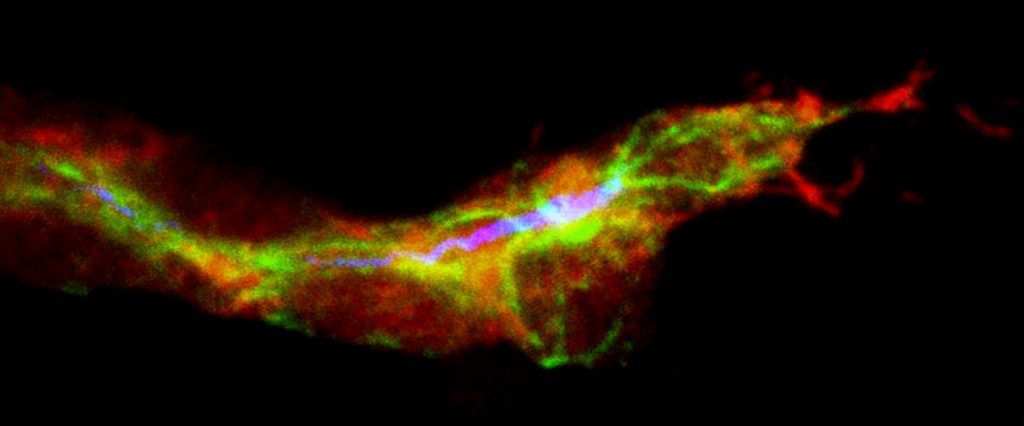Results from a preliminary study indicate that among patients with relapsing-remitting multiple sclerosis (MS), treatment with nonmyeloablative hematopoietic stem cell transplantation (low intensity stem cell transplantation) was associated with improvement in measures of disability and quality of life, according to a study in the January 20 issue of JAMA.
Fifty percent of patients with MS are unable to continue employment by 10 years from diagnosis or are unable to walk by 25 years. Despite an annual cost of approximately $47,000 per patient to treat MS, no therapy approved by the U.S. Food and Drug Administration has been shown to significantly reverse neurological disability or improve quality of life, according to background information in the article.
Multiple sclerosis is thought to be an immunemediated disorder of the central nervous system. Autologous (the use of one’s own cells) hematopoietic (blood) stem cell transplantation (HSCT) is a form of immune suppression but unlike standard immune-based drugs, autologous HSCT is designed to reset rather than suppress the immune system. Richard K. Burt, M.D., of the Northwestern University Feinberg School of Medicine, Chicago, and colleagues studied the association of nonmyeloablative HSCT with neurological disability and other clinical outcomes in patients with relapsing-remitting MS (defined as acute relapses followed by partial or complete recovery and stable clinical manifestations between relapses; n = 123) or secondary-progressive MS (defined as a gradual progression of disability with or without superimposed relapses; n = 28) treated between 2003 and 2014.
Outcome analysis was available for 145 patients with an average follow-up of 2.5 years. On a measure of disability (Expanded Disability Status Scale [EDSS] score), there was significant improvement in 41 patients (50 percent of patients tested at 2 years) and in 23 patients (64 percent of patients tested at 4 years). “To our knowledge, this is the first report of significant and sustained improvement in the EDSS score following any treatment for MS,” the authors write.
Receipt of HSCT was also associated with improvement in physical function, cognitive function and quality of life. There was also a reduction on another measure of clinical disease severity, volume of brain lesions associated with MS seen on magnetic resonance imaging (MRI). Four-year relapse-free survival was 80 percent and progression-free survival was 87 percent.
Patient selection is important in determining outcome, the researchers write. “In the post hoc analysis, the EDSS score did not improve in patients with secondary-progressive MS or in those with disease duration longer than 10 years.”
The authors note the results are limited because this was an observational study without a control group. “Definitive conclusions will require a randomized trial; however, this analysis provides the rationale, appropriate patient selection, and therapeutic approach for a randomized study.”
Story Source:
The above story is based on materials provided by The JAMA Network Journals.





